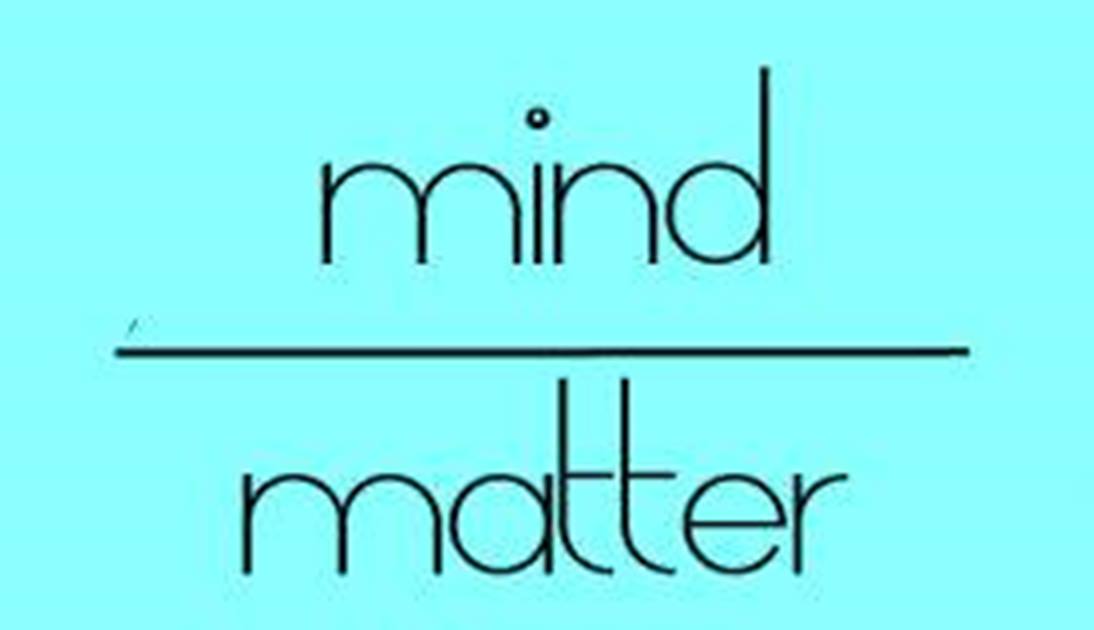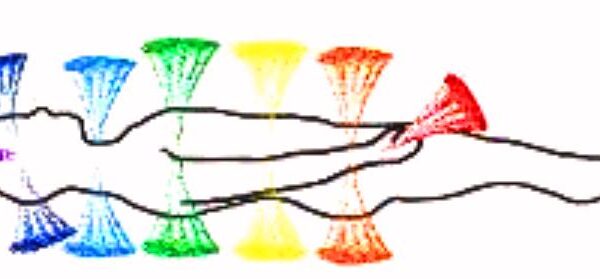The study of the mind-body connection explores the impact our thoughts and emotions have on our health and wellbeing.
Extensive research has shown the tremendous impact our state of mind has on our physical health. Positive thoughts can promote well-being, motivation and resilience, while negative thoughts can lead to stress, anxiety and sadness.
Because our thoughts influence our emotions, and they trigger physiological reactions throughout our bodies it is wise for us to become the observer of our thoughts and not the thoughts themselves! That way we can either take ownership of the thoughts and believe them or question their validity and dismiss them if they are not true. The body will believe the thoughts we believe whether they are true or not.
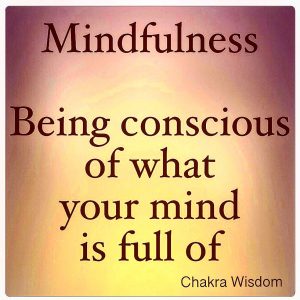
Chronic negative stress is often triggered by negative thoughts and emotions, and it will activate the body’s stress response, releasing stress hormones like cortisol and adrenaline.
Elevated cortisol levels can weaken the immune system, raise blood pressure, and impair cognitive function, putting us at increased risk for various health issues such as heart disease, diabetes, and depression. Emotional well-being and immune function are also directly affected.
Positive emotions and an optimistic mood are associated with increased immune activity and better overall health and wellbeing plus increased resistance to disease.
The placebo and nocebo effects also provide dramatic evidence of the effects of the mind on the body. The placebo effect occurs when a patient becomes healthier simply because of the belief that they will receive an effective treatment. In contrast, a nocebo effect occurs when negative expectations and thoughts compromise a person’s health, even if the treatment itself is not actually harmful. The body believes what we believe!
These results highlight the tremendous impact our minds have on physical healing.
Mind-body techniques such as meditation, mindfulness, and visualization harness the power of meditation to positively impact our physical well-being. These practices have been shown to reduce stress, boost the immune system and promote relaxation, all of which ultimately enhance overall health outcomes.
Understanding and nurturing this interaction can enhance our ability to develop positive thoughts, promote well-being, and improve overall health.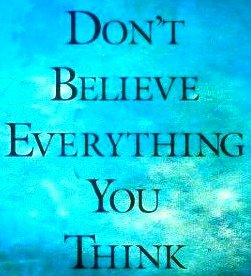
Ideally, we would aim to get to the stage where we realise that, ‘I am not my mind, I am not even my thoughts. I am the observer of my thoughts, and some of my thoughts are not even true!’ The aim is not to be deceived by thoughts that are not true and/or negative as they are obstacles to our good health. The body believes everything we believe!
My Favourite Short Story
A little boy asked the guru to
tell him about the mind
and the guru says,
“The mind is made up of 2 wolves, a good wolf,
and a bad wolf,” and the little boy asks him,
“Which one wins?” and the guru says,
“The one you feed the most.”
Sometimes when I catch thoughts arising that I realise are from the ‘bad wolf’, I may say to myself, “That’s interesting,” or “I don’t believe that is true.” If we do not ‘buy into’ the ‘bad wolf’ stories, neither will our body!
Be the observer of your thoughts and practice discrimination as to what you choose to believe. Behave the same as if you were receiving the information from someone else!
Mindfulness and Wellbeing
Mindfulness significantly helps us focus on the present moment by encouraging us to observe our thoughts and feelings and help change our perspective from ‘negative self-talk’ towards ‘positive self-talk’.
The origins of mindfulness are found in Buddhism and Zen traditions with the common definition being: ‘The psychological process of bringing one’s attention to experiences occurring in the present moment, which one can develop through the practice of meditation and through other training.’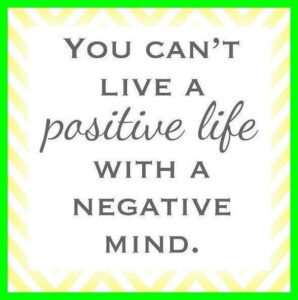
In the context of this post, mindfulness also means:
1. Being conscious (mindful) of the thoughts that are in your mind and how you feel now.
2. Being conscious (mindful) of the thoughts you would like to have in your mind and how you would like to feel.
3. Being conscious (mindful) of what is going on around you at this moment and how you are interacting with this moment and not being overly reactive, overwhelmed, or under-responsive.
The more aware we are of what we are thinking, the more likely we are to realise that all our thoughts are not true and that we are not our mind or our thoughts! When we realise that we are the observer of our thoughts, (and not the thought itself) we are in a better position to decide if we want to challenge, change, or embrace those thoughts.
It is important to remind ourselves that it is a positive personal growth experience when we witness ourselves (i.e., being mindful), overreacting to situations, behaving in a manner that we would like to change, taking other people’s ‘bait’ again, over-thinking, thinking negatively, putting ourselves down, being over critical or complaining verbally and/or mentally or not creating boundaries with others.
However, often our ‘bad wolf’ wants us to feel guilty when we have these realisations!
When we regularly repeat to ourselves the affirmations found later in this book we are embracing a major concept of mindfulness. We are also being exceptionally mindful of the virtues and qualities we seek to integrate and encourage in our lives and choose to live consciously. Chakra Awareness – gain amazing insights
“But perhaps the most important reason for pursuing mindfulness is so we can have a better health outcome, by improving our mind-body connection. The deeper we go into mindfulness, the more likely we are to enhance our brain, heart and immune system functioning as well.
The mind-body connection has big implications for a range of illnesses, immune-related diseases, but also a growing list of other conditions.” (from ‘The Neuroscience of Mindfulness’ by Neuroscientist Stan Rodski).
https://www.facebook.com/chakrawisdom
For more information see my book: Chakra Wisdom Workbook – Using Mindfulness, Affirmations, and other tools to Support Your Health and Wellbeing

If you are struggling with your thoughts, personal interactions, experiencing a personal crisis or have anxiety or depression, it is highly recommended that you seek help from a doctor, mental health professional, counsellor or therapist. It is a sign of strength to ask for help, not a weakness!
